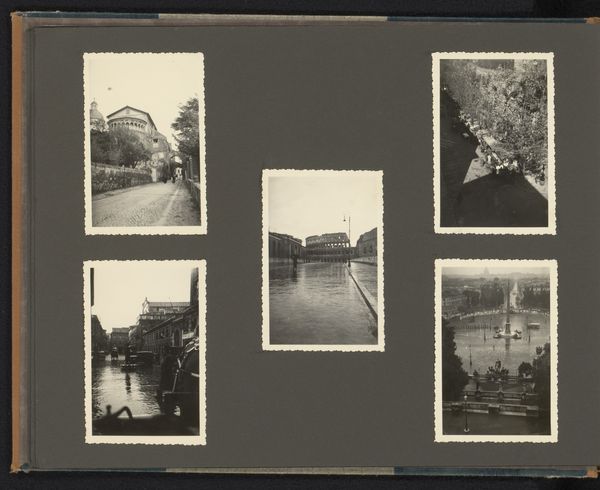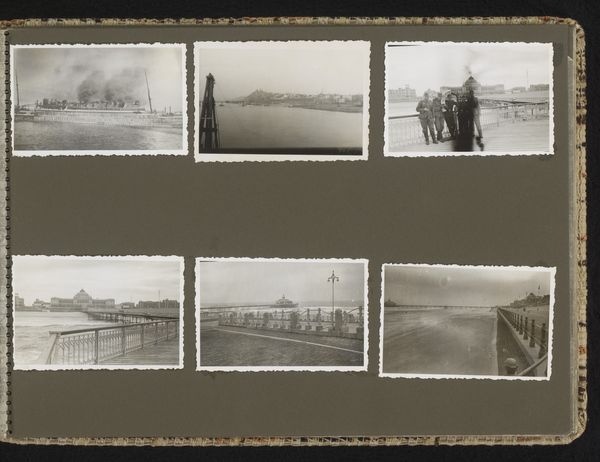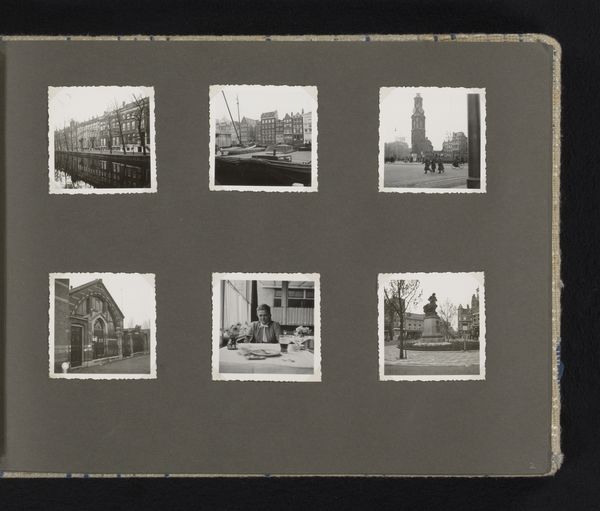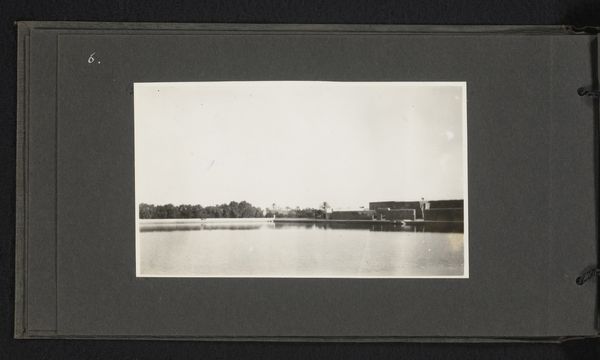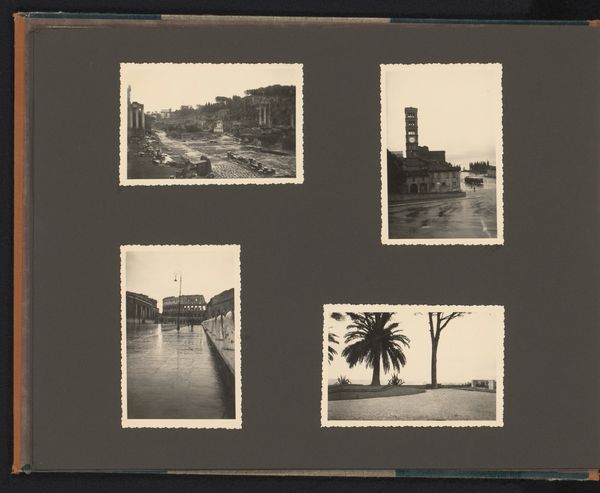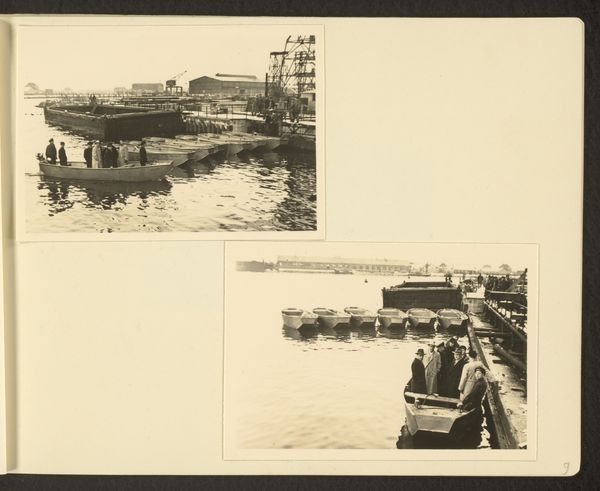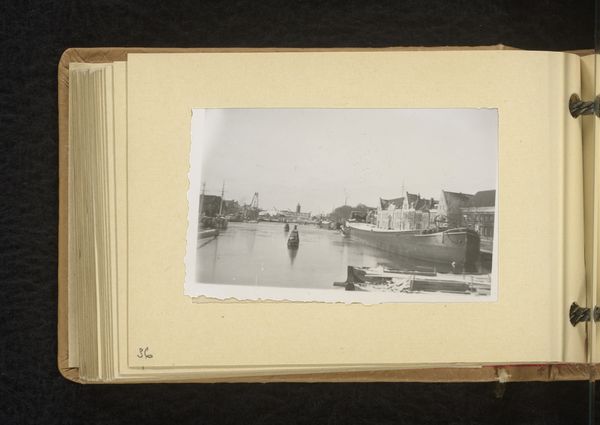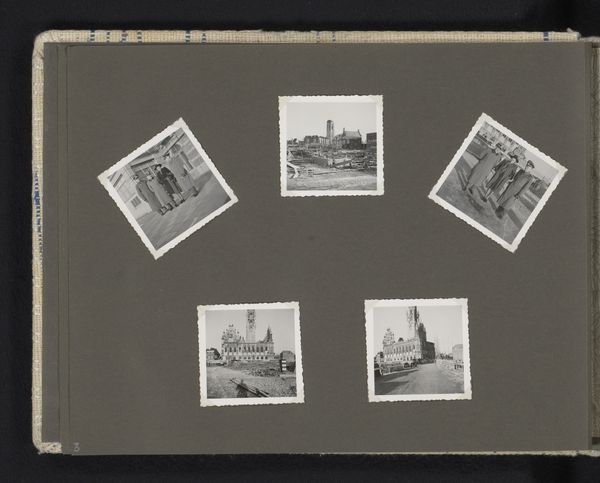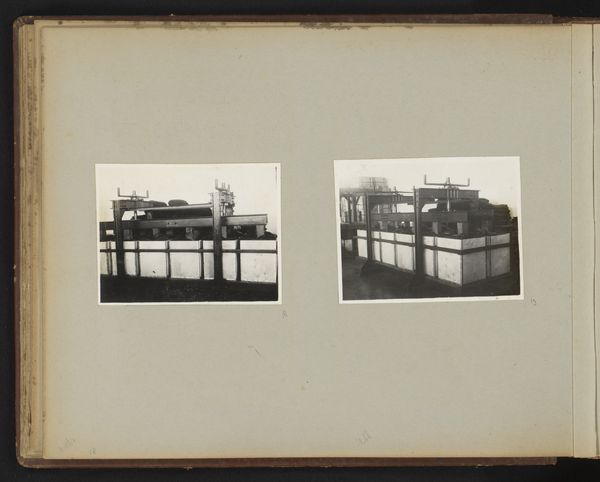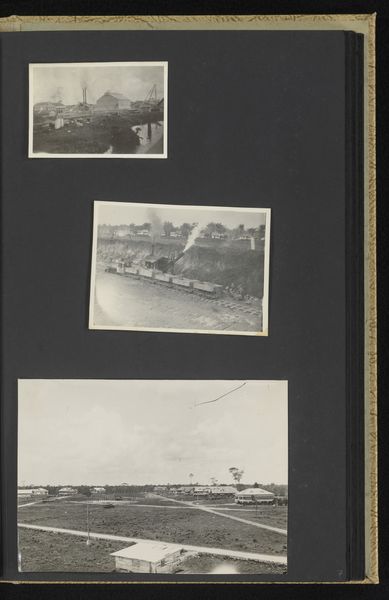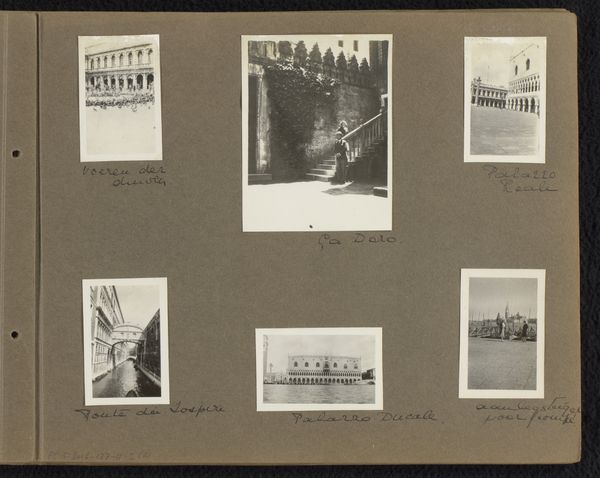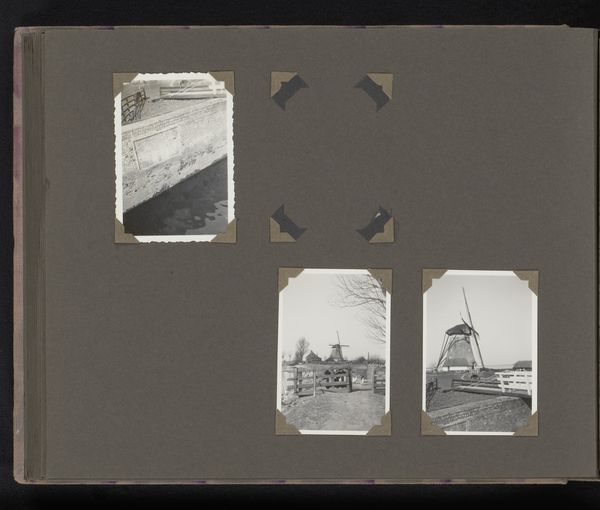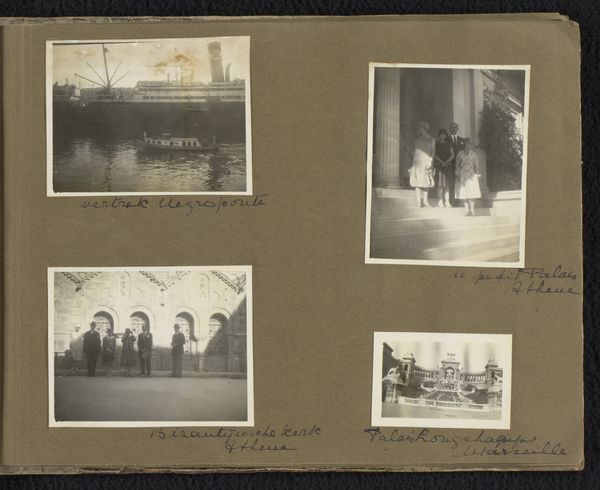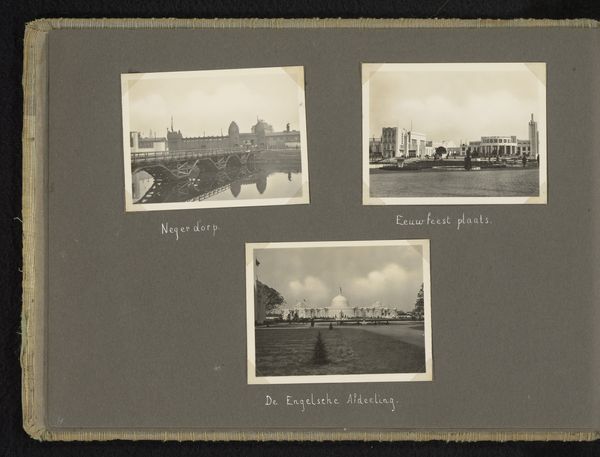
print, photography, montage, albumen-print
# print
#
landscape
#
photography
#
montage
#
cityscape
#
modernism
#
albumen-print
Dimensions: height 65 mm, width 95 mm, height 210 mm, width 290 mm
Copyright: Rijks Museum: Open Domain
Editor: This is "Gezichten te Amsterdam," made between 1940 and 1943. It's a photo montage made with albumen prints. It feels very…documentary. The prints are carefully placed on the album page. What's striking to you about this piece? Curator: Well, consider the timing – 1940 to 1943. Amsterdam was under Nazi occupation. These seemingly innocent cityscapes, rendered through photography and the craft of printmaking, become charged. I'm curious about the anonymity of the artist too. What do you make of that? Editor: It does seem relevant to those dates. And an anonymous artist. Almost like recording history, or preserving it? But why a photo *album*? Curator: Exactly. The album format speaks to personal archiving and control over representation. Think about the materials readily available during wartime, photographic paper, the chemicals for developing, the labor involved in sourcing and processing these items. These choices signify a subversive act. It’s more than just a cityscape, wouldn't you say? Editor: Definitely more. Using photography, a medium with associations to "truth," combined with the intimate album form, it feels like preserving a personal truth outside of official narratives. Each albumen print probably needed darkroom skills, resources to buy materials. Maybe even a hiding place. Curator: Precisely. And think about the viewer, too, engaging with these prints. What kind of community might have viewed these images in secret? What type of exchange may they have prompted? Editor: It shifts my perspective entirely. Initially, I saw simple photos, but the materials, process and period suddenly turn the everyday into something else completely. Curator: It's in the meticulous making and the sharing that this work transcends a simple picture and starts a deeper discussion. It shows us that the tools and circumstances of production shape how we understand history.
Comments
No comments
Be the first to comment and join the conversation on the ultimate creative platform.
